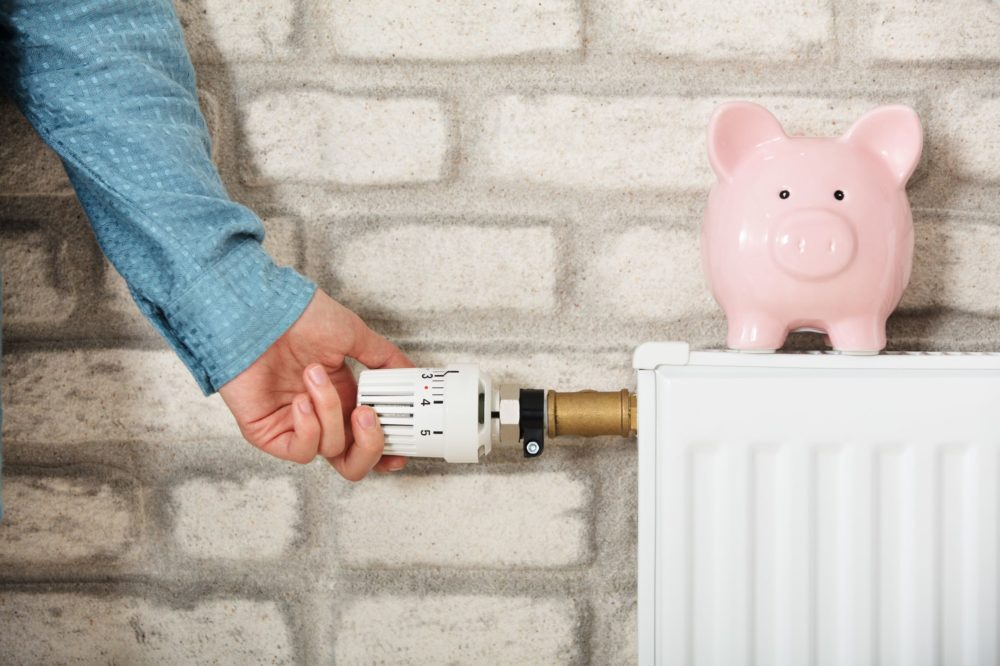Latest update August 24th, 2024 2:13 PM
Latest News
- An Experts Insight to Spain’s Golfing Gems
- How to stay up to date with global trade news
- Is digital advertising more or less effective at increasing brand awareness than traditional advertising methods?
- 5 easy-to-overlook ways you can save time in your business operations
- How to Recover From a WordPress Website Attack
4 ways to reduce your energy bills
Jan 31, 2019 Web Developer Advice & Guides 0

The prices we pay for gas and electricity for our home are constantly changing. Quite often, it feels like the bills we receive every three months get more and more expensive.
Fortunately, there are a number of changes you can make – both to your behaviour and your home – to effectively cut down your energy bills by considerable amounts each year. Here are our four top tips to reduce the amount you pay to power your home.
Step One: Knock down your deal
Before you consider all of the little daily changes you can make to chip away at your energy bill, you should look at what you are already being charged.
Of course, the other steps in this article will all help to lower the amount you need to pay but these tend to revolve around reducing the amount of energy you use. Your first course of action should be to ensure you are paying the lowest possible price per unit of energy you use (regardless of how much you use).
Energy providers are always altering their prices and their tariffs. Whether this is due to raw material price inflation, financial pressures within the firm or external stressors the company have no power over, there is no place for brand loyalty to your current supplier when it comes to lowering your energy bill.
In 2018 alone, some of the UK’s top gas and electric suppliers have made and plan to make some substantial changes to their energy prices, as you can see below.
UK energy supplier |
Old price |
New price |
Difference in pounds sterling |
Difference as a percentage |
Changes effective from |
|
Bulb |
£855 | £878 | £24 | 2.8% |
April 2018 |
|
Bulb |
£923 | £1,025 | £102 | 11.1% |
November 2018 |
|
British Gas |
£1,101 | £1,161 | £60 | 5.5% |
May 2018 |
|
British Gas |
£1,161 | £1,205 | £44 | 3.0% |
October 2018 |
|
EDF |
£1,142 | £1,158 | £16 | 2.7% |
June 2018 |
| EDF | £1,158 | £1,228 | £70 | 6.0% |
August 2018 |
That’s why it is always wise to shop around for the best price possible. This is particularly important if you are approaching the end of your contract but it is best practice to continue looking around throughout the year.
Even if your current provider has high exit fees, the savings you could make elsewhere could be worth the initial cost. When you call your current provider to make the switch elsewhere, in some cases they may also offer lower prices and better deals to tempt you to stay.
Price comparison website uSwitch claim that there is as much as a £300 a year difference between the best priced and the worst priced tariffs on offer. Make sure you find the lowest price for your energy usage and always look for fixed deals where your bill cannot be changed before the end of the term.
Step Two: Don’t leave the light on.
Once you know you are paying the right amount for what you are using, you should look at getting your usage as low as you possibly can.
One of the worst offenders for racking up your energy bill are lights. The lighting in your home makes up as much as 19% of the average household’s annual electricity bill.
A great way of lowering this cost is by replacing your existing bulbs with energy-saving or LED lightbulbs. While they may cost more to purchase initially, they use 80% less energy than traditional bulbs to power so you can knock off an extra £55 from your electricity bill each year.
These eco-friendly bulbs also last ten times longer than their halogen cousins. Over their lifetime, this equates to savings of around £120 per bulb before needing to be replaced, according to the Energy Saving Trust.
Whether you choose to replace or not, there are other small changes you can make to your everyday life that can make a big difference to your energy usage and bill.
Always turn lights off when you leave a room. While some may try to tell you that it takes more electricity to switch lights back on than you would save by switching them off, energy experts agree this is just a myth.
Cutting out other habits like leaving the lights on when you pop out to the shops in the evening or having landing lights on through the night could save you around £10 a year.
Step Three: Insulate your home.
The Centre for Sustainable Energy say that the average home loses more than 10% of its heat through windows and doors. That is 10% of the energy you are paying for quite literally going out the window.
If you’re looking to reduce your energy bill, you should consider replacing old and inefficient windows with more modern double glazing. Heat can escape both through glass and through any cracks and gaps in the sealant, so make sure your windows are as energy-efficient as possible.
On top of this, you should also draw any curtains or blinds at night and use draught-blockers under doors to keep as much heat as possible inside your home.
You could also take advantage of the many free insulation deals on the market. This could be a government-backed grant or funded by your energy supplier. By having cavity wall and loft insulation in your home, you could save hundreds of pounds on your heating bill each year.
According to the Energy Saving Trust, loft insulation alone saves homeowners up to £175 a year, with cavity wall insulation taking off a further £135 from your total bill.
Step Four: Replace your boiler.
While all of these points are incredibly important, the main change you can make to drastically reduce your energy bill is by replacing your outdated boiler.
Boilers burn through between 60% and 79% of your total fuel usage, say the Energy Saving Trust and Which. By taking out a tired and struggling boiler and fitting a top-of-the-rage combi boiler in its place, you could greatly improve the energy efficiency of your home.
A modern combi boiler is an investment that can add a great deal of value to your home. In fact, if you’re thinking of selling your property at some point in the future, a recently refurbished boiler could be a brilliant selling point since potential buyers know they won’t need to replace it themselves. Compare Combi Boiler Prices & Save
In terms of lowering energy bills, high energy efficiency rated boilers can have a major impact on your annual energy bill. The age and model of your existing boiler can make a huge difference to how much it costs to power.
See below just how much you could save on energy bills with each type of boiler according to energy performance specialists Sedbuk.
Type of boiler |
Annual fuel costs based on property type |
|||
Flat |
Semi-detached house |
Detached house |
Energy efficiency |
|
|
Heavyweight old gas boiler |
£779 | £1204 | £1705 | 55% |
|
Lightweight old gas boiler |
£659 |
£1019 | £1442 |
65% |
|
Modern non-condensing boiler |
£549 |
£849 | £1202 |
78% |
| Modern condensing boiler | £481 | £744 | £1053 |
89% |
By replacing an old G-rated boiler with a modern A-rated model with fully customisable heating controls, you could save around £340 per year.
Combi boilers are one of the single most important home investments you can make to reduce your annual energy bills.
Related articles
-
 An Experts Insight to Spain’s...
An Experts Insight to Spain’s...Comments Off on An Experts Insight to Spain’s Golfing Gems
-

-
 Is digital advertising more or less...
Is digital advertising more or less...Comments Off on Is digital advertising more or less effective at increasing brand awareness than traditional advertising methods?
-

Featured Articles
-
 An Experts Insight to Spain’s Golfing Gems
An Experts Insight to Spain’s Golfing GemsAug 24, 2024 Comments Off on An Experts Insight to Spain’s Golfing Gems
For golf lovers in the UK, Spain is an ideal choice as just... -
 How to Recover From a WordPress Website Attack
How to Recover From a WordPress Website AttackJun 06, 2019 0
So your WordPress website was attacked. What next?... -
 7 Features Businesses Should Look for in Contract...
7 Features Businesses Should Look for in Contract...Nov 29, 2018 0
Contract Management is the organization of contracts a... -
 Ask the Expert: How to sell your skill sets online –...
Ask the Expert: How to sell your skill sets online –...May 14, 2018 0
Kiera Louise runs one of Manchester’s top makeup... -
 What To Do If Your Business Partner Passes Away
What To Do If Your Business Partner Passes AwayDec 27, 2017 0
If you’re a partner in a business, managing the death of...

















































































